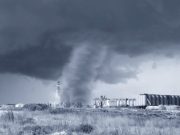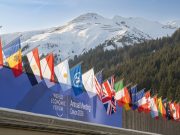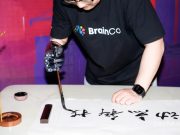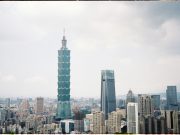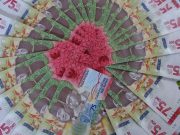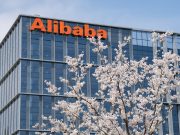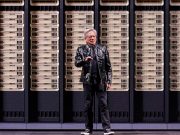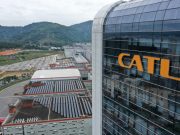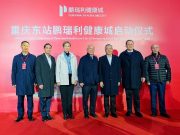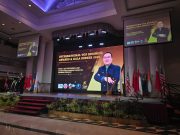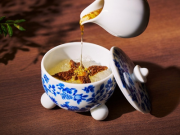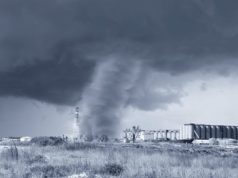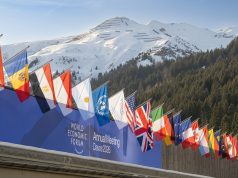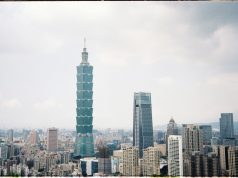
(Photo: The White House website)
(Singapore, 28.10.2025)U.S. President Donald Trump on Tuesday praised Japan’s new prime minister, Sanae Takaichi, as a “great leader” and welcomed her push to boost defense and economic ties with Washington. The two met in Tokyo to sign trade and minerals deals, reinforcing their alliance amid rising global tensions.
Takaichi, 64, made history this month as Japan’s first female prime minister. A protégé of the late Shinzo Abe, she has vowed to continue her mentor’s strong ties with Washington and his push for a more assertive Japanese defense posture. Her meeting with Trump marks her first major diplomatic test since taking office.
“Everything I know from Shinzo and others, you will be one of the great prime ministers,” Trump said as they met at Tokyo’s Akasaka Palace. “I’d also like to congratulate you on being the first woman prime minister — it’s a big deal.”
According to Reuters, the two leaders shared warm exchanges throughout the day. Trump praised Japan as “one of America’s strongest allies,” while Takaichi lauded the partnership as “the greatest alliance in the world,” pledging to make Japan “a great national power.”
A New Chapter in U.S.–Japan Relations
The visit marks a symbolic renewal of ties between the two nations as both face rising regional challenges — from North Korea’s nuclear program to Beijing’s tightening grip on critical minerals. The two leaders signed a framework agreement to strengthen cooperation on rare earths and critical minerals, materials that are essential for products such as smartphones, electric vehicles, and fighter jets.
The deal commits both countries to jointly identify and invest in projects over the next six months to diversify supply chains away from China, which currently processes over 90% of the world’s rare earths. They will also explore ways to build shared stockpiles and cooperate with other partners to stabilize global markets.
“Together, Japan and the United States will work to secure fair and reliable supplies of these key materials,” the White House said in a statement.
Though neither Trump nor Takaichi directly mentioned China, the message was clear. The agreement is seen as a strategic step to reduce dependence on Beijing and protect industries vital to national security.
Alongside the minerals deal, the two sides discussed a broader trade and investment framework that could total as much as $550 billion in Japanese commitments to U.S. projects. The package may include investments in shipbuilding, liquefied natural gas (LNG), and power generation, as well as purchases of U.S. soybeans and pickup trucks.
At a private lunch featuring U.S. beef and rice alongside vegetables from Takaichi’s hometown of Nara, the prime minister presented Trump with a map showing Japanese companies’ investments in the U.S. since his last visit in 2009. Public broadcaster NHK reported that at least 10 Japanese firms are planning more than $400 billion of new investments in fields such as artificial intelligence and clean energy.
Trump, in turn, offered his trademark praise and optimism. “We’re going to do tremendous trade together — more than ever before,” he said. “Anytime you have a question, any doubt, anything you want — we’ll be there. We are an ally at the strongest level.”
The trade documents signed Tuesday, however, were light on detail. Officials from both governments described them as frameworks that confirm ongoing efforts and future cooperation rather than finalized deals.
Takaichi Invokes Abe’s Legacy to Strengthen Ties with Trump
Throughout the visit, Takaichi drew heavily on her connection to the late Shinzo Abe, who was assassinated in 2022. Abe was one of Trump’s closest foreign allies during his first term, and the two bonded over rounds of golf. To honor that friendship, Takaichi presented Trump with Abe’s golf putter, a gold-leaf golf ball, and a golf bag signed by Masters champion Hideki Matsuyama.
Photos posted online by Trump’s aides showed the two leaders exchanging gifts beneath the palace’s chandeliers, decorated with gold ornamentation. Trump later gave Takaichi golf hats embroidered with the words “JAPAN IS BACK” in gold lettering.
Analysts say Takaichi’s efforts to evoke Abe’s legacy could help her build trust with Trump and strengthen her political standing at home. Although public support for her has risen since she took office, her ruling coalition remains two votes short of a majority in parliament’s lower house.
Defense and security were major themes of the talks. Takaichi reaffirmed her pledge to raise Japan’s defense spending to 2% of GDP by next March — two years ahead of schedule — citing the growing threats from China and North Korea.
Trump, who has long pressed allies to contribute more to their own defense, welcomed the move. “Japan’s commitment to peace and strength makes the world safer,” he said.
Later in the day, Trump and Takaichi visited the U.S. naval base in Yokosuka, home to the aircraft carrier USS George Washington, a symbol of America’s military presence in the Indo-Pacific. U.S. Defense Secretary Pete Hegseth and Japan’s Defense Minister Shinjiro Koizumi are set to hold follow-up talks on Wednesday.
Abductees, alliances, and Asia strategy take center stage
In a gesture that resonated deeply in Japan, Trump met with families of citizens abducted by North Korea decades ago — an issue championed by Abe. “The United States is with them all the way,” Trump said, adding that he remains open to meeting North Korean leader Kim Jong Un during his Asia trip.
Takaichi thanked Trump for keeping the issue alive, saying it was “a matter of national importance.”
Trump’s Tokyo stop is part of a five-day swing through Asia that began in Malaysia and will end with a highly anticipated meeting with Chinese President Xi Jinping in South Korea on Thursday. The two are expected to discuss a possible truce in their ongoing trade disputes, including U.S. tariffs and China’s export controls on rare earths.
For Takaichi, the meeting with Trump provided both validation and a challenge — a chance to cement her credentials on the world stage while managing her country’s delicate balancing act between economic cooperation and strategic independence.
“Japan is ready to contribute toward world peace and stability,” she said. “With the United States, we will continue to protect our shared values of freedom and democracy.”


